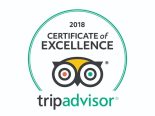Isole
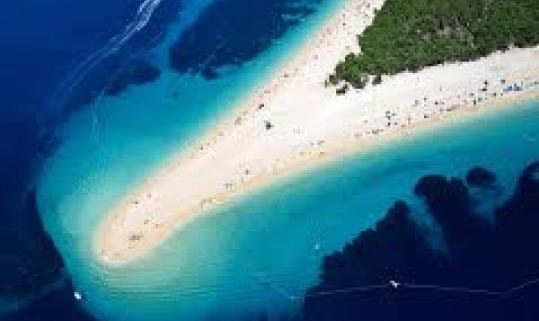
Brač
L’isola di Brač (Brazza) si raggiunge da Spalato con una traversata in traghetto in soli 45 minuti.
È la più grande isola della Dalmazia e la terza dal Mare Adriatico. È anche l’isola più alta nel Mare Adriatico. Il suo monte più alto, Vidova Gora, ( 778 m sopra il livello del mare) offre una vista indimenticabile sul mare aperto e sulle isole.
A Brač ci sono tanti piccoli paesi, tipicamente mediterranei, quali Bol, Supetar, Postira, Sutivan e Milna, recondite insenature e bellissime spiagge. La maggior fama ne gode quella di Zlatni rat a Bol, iscritta nell’elenco delle dieci spiagge più belle nel mondo.

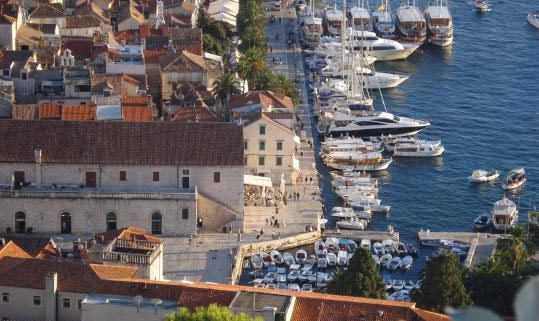
Hvar
L’isola di Hvar (Lesina) si raggiunge da Spalato in due ore con una traversata in traghetto, un’ora in catamarano. La superficie dell’isola è di 299,7 km².
Hvar è una delle più conosciute isole dalmate, popolata già dal periodo preistorico, da 6000 anni fa. È caratterizzata dal tipico clima mediterraneo con poche precipitazioni, bellissimi paesaggi, ricca tradizione, monumenti culturali e naturali, avvincente vita notturna. L’isola è conosciuta per i suoi distesi campi di lavanda, vigne e divertimento a non finire. I paesi più grande e più noti sono:
La città di Hvar – con bellissimo porto e mandracchio, il più antico teatro pubblico in Europa, risalente al 1612, palazzo di Hanibal Lucić…
Stari Grad (Cittavecchia) – la più antica città in Croazia. Anche nei mesi estivi ha clima rinfrescante grazie al bosco e maestrale estivo. Oltre alle vigne e ulivetti vi potete visitaremonumenti storico culturali come Tvrdalj – un castello rinascimentale, Škor – piccola piazza barocca, il palazzo Biankini.
Jelsa – situata nel centro della costa settentrionale dell’isola. È l’unico paese dell’isola che ha la propria fonte dell’acqua potabile. La sua architettura è tipica del XIX secolo ma vi sono anche vestigia preistoriche, antiche e medievali visibili in diverse chiesette, piazze ecc.

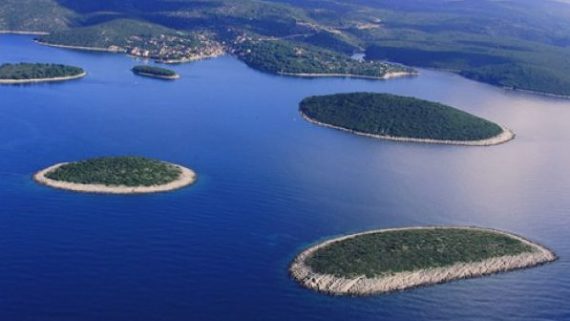
Šolta
L’isola di Šolta si raggiunge da Spalato in un’ora con una traversata in traghetto.
Le prime tracce che testimoniano la presenza dell’uomo sull’isola risalgono al neolitico. Šolta è l’isola degli ulivetti, delle vigne, dei fichi e del miele, ideale per i turisti nautici, per le famiglie e tutti coloro che cercano di fuggire allo stress quotidiano.
È l’isola della natura intatta con numerose belle insenature come Šešula, Zaglav… Vale la pena di visitare i piccoli paesi Stomorska, Maslinica, Rogač, Nečujam.

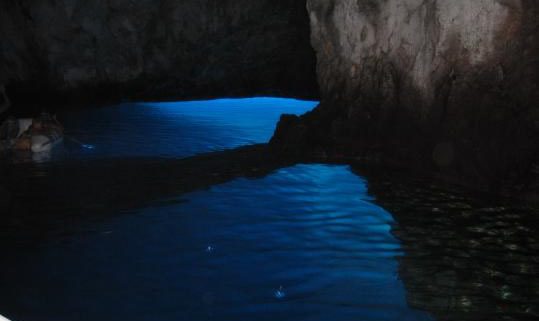
Grotta Azzurra-Biševo
La Grotta Azzurra si trova nella piccola insenatura Balun nell’isola di Biševo. È lunga 24 metri, larga 10-12 metri, alta fino a 15 m e la sua profondità raggiunge 16 metri. L’entrata alla grotta è alta circa 1,5 m e larga circa 2,5 m con un lungo corridoio marino.
Nell’anno 1884 la grotta è stata descritta e disegnata dal barone Eugen von Ransonnet. Alla sua proposta l’apertura della grotta è stata allargata rendendola accessibile a tutto il mondo.
La grotta ha due aperture – la più piccola, ottenuta con ampliamento artificiale, per la quale può passare la barca e l’apertura più grande, a forma della volta, che si trova nella parte meridionale della grotta, sotto il livello del mare. Da quest’apertura sotto acqua i raggi del sole penetrano dentro la grotta infragendosi prima nell’acqua e riflettendosi poi dal fondo il che dà all’interno della grotta un magnifico colore blu- argenteo.
Dipendente dalla stagione, l’ora ideale per la visita della grotta è tra le ore 9 e 13.


 Italiano
Italiano Hrvatski
Hrvatski English
English Deutsch
Deutsch


